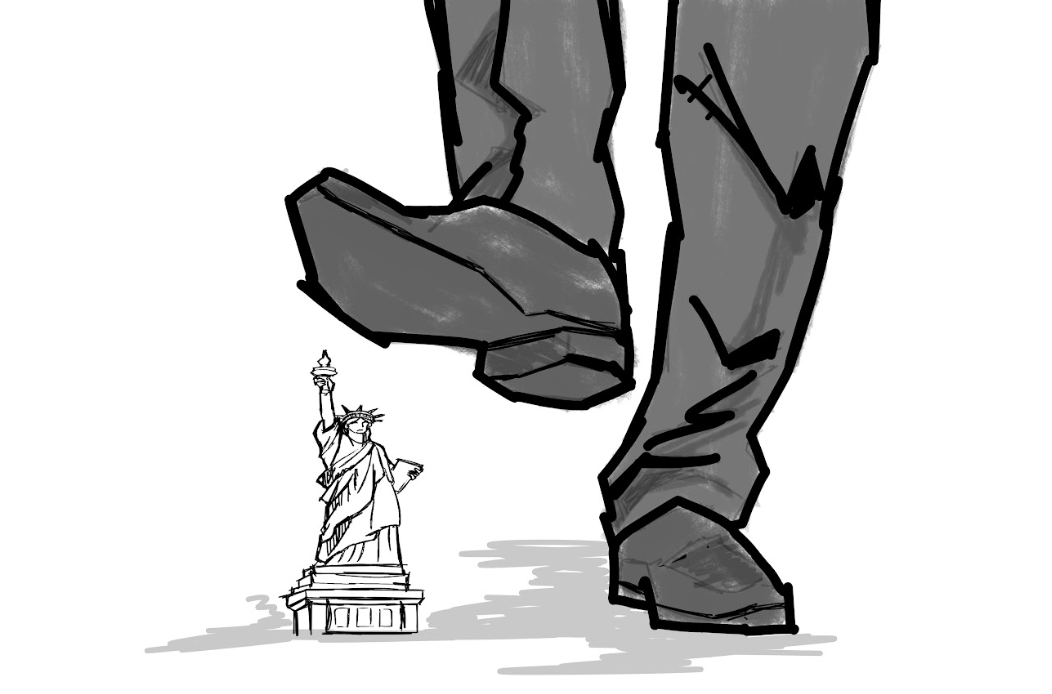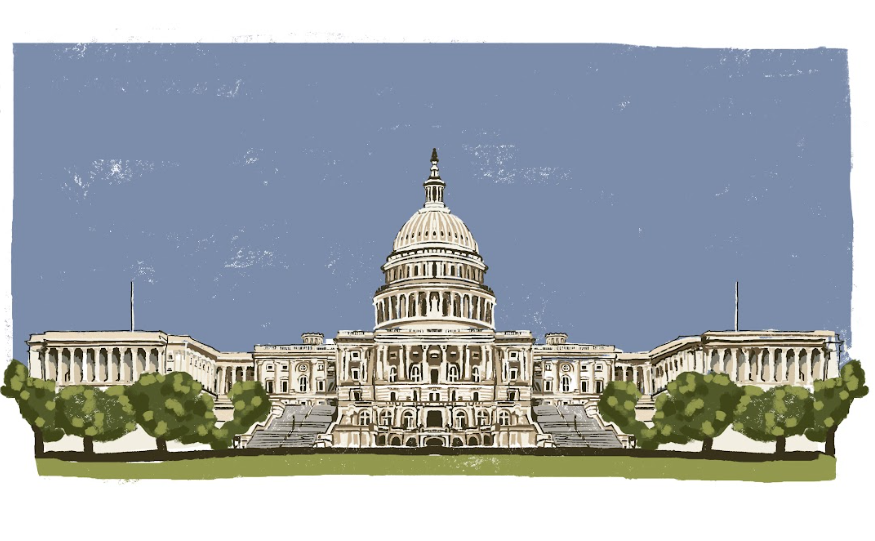My dear readers,
Be sure that you are not alone in your anxiety with this election season. I do not know when you will read this; be it in the day-long lines of Election Day, or cradled in a quiet corner on Thursday, cloaked in the consequences of our choices. We have finally made it to the end, but we must also accept that the end is the beginning of everything else. The culmination of this election occurs in a thunderstorm of noise and dizzying rage. We’re experiencing a sense of national vertigo, and we have to find a way to resist falling regardless of who ascends to the White House.
C.S. Lewis’ ‘The Screwtape Letters’ is a satirical epistle novel consisting of letters exchanged between senior Demon Screwtape and his nephew Wormwood, a “Junior Tempter” demon learning how to sway Christians from their faith. In his first letter to Wormwood, Screwtape provides an analysis of humanity that reads as accurate and relevant to our current political climate:
“[M]an has been accustomed, ever since he was a boy, to having a dozen incompatible philosophies dancing about together inside his head. He doesn’t think of doctrines as primarily ‘true’ or ‘false,’ but as ‘academic’ or ‘practical,’ ‘outworn’ or ‘contemporary,’ ‘conventional’ or ‘ruthless.’ Jargon, not argument, is your best ally.”
Polarizing dichotomies are ripping us at the seams, and the “jargon” Screwtape writes about has polluted political discourse and our American psyche. Lewis’ letters were published during WWII while Hitler’s Nazism plagued Europe. With Hitler, the absolutes, the dichotomies, the “us/them” factions were fueled by fear to the point that reason was almost stomped out.
Screwtape encourages Wormwood to drive his “patient” away from what centers him, and down a path that leads straight to Hell. Perhaps we as a nation have drifted away from what centers us. As individuals, we each define faith according to how we live and achieve happiness, be it faith in ourselves, our family, humanity, Yahweh, Allah, or the Flying Spaghetti Monster. As a collective, we now seem fragmented; disjointed. And the “jargon” of this election season that stimulates sound bytes by the hour seems to break us rather than bind us back together.
If there is a shared sentiment amidst the shouting, it is the frustration Americans feel toward Washington D.C. lawmakers, and those many consider to be “the elite” or “the establishment.” And what has been a major element of the establishment is neoliberalism, which emphasizes free-market competition. Citizens are consumers, and consumerism makes the world go ‘round.
Paolo Gerbaudo writes in openDemocracy, “The crisis of the neoliberal order, which has been spectacularly displayed in the victory of Brexit and the difficulties experienced by Hillary Clinton in the US presidential election campaign, has resuscitated one of the most time-honoured of political notions: the idea of sovereignty.
Usually understood as the authority of the state to govern over its own territory, sovereignty had been thought to have been consigned to the dustbin of history in the globally interconnected world of the internet and multinational corporations. But this notion is now almost obsessively invoked by the new populist formations and leaders that have emerged on both the Left and the Right since the 2008 financial crash.”
The sovereignty and populism Gerbaudo writes about were at the forefront of Donald Trump’s and Bernie Sanders’ appeal to Americans who felt left behind or compromised for, what they felt was the sake of globalization. Hardship has resulted in an apprehension to believe our government can balance its role abroad and its responsibility at home. Many feel justified in feeling, “It’s either them or us. And it’s going to be us.”
Whoever wins the election cannot ignore these concerns, but address them straight on. A dissonance has been occurring in the grey, nuanced fabric of our society. Things have never been black and white, nor can we let ourselves believe things would be better as such. We have to try to come out of this together, if for no other reason than to upset Screwtape and his demonic intentions.
Your affectionate columnist,
Adriene








